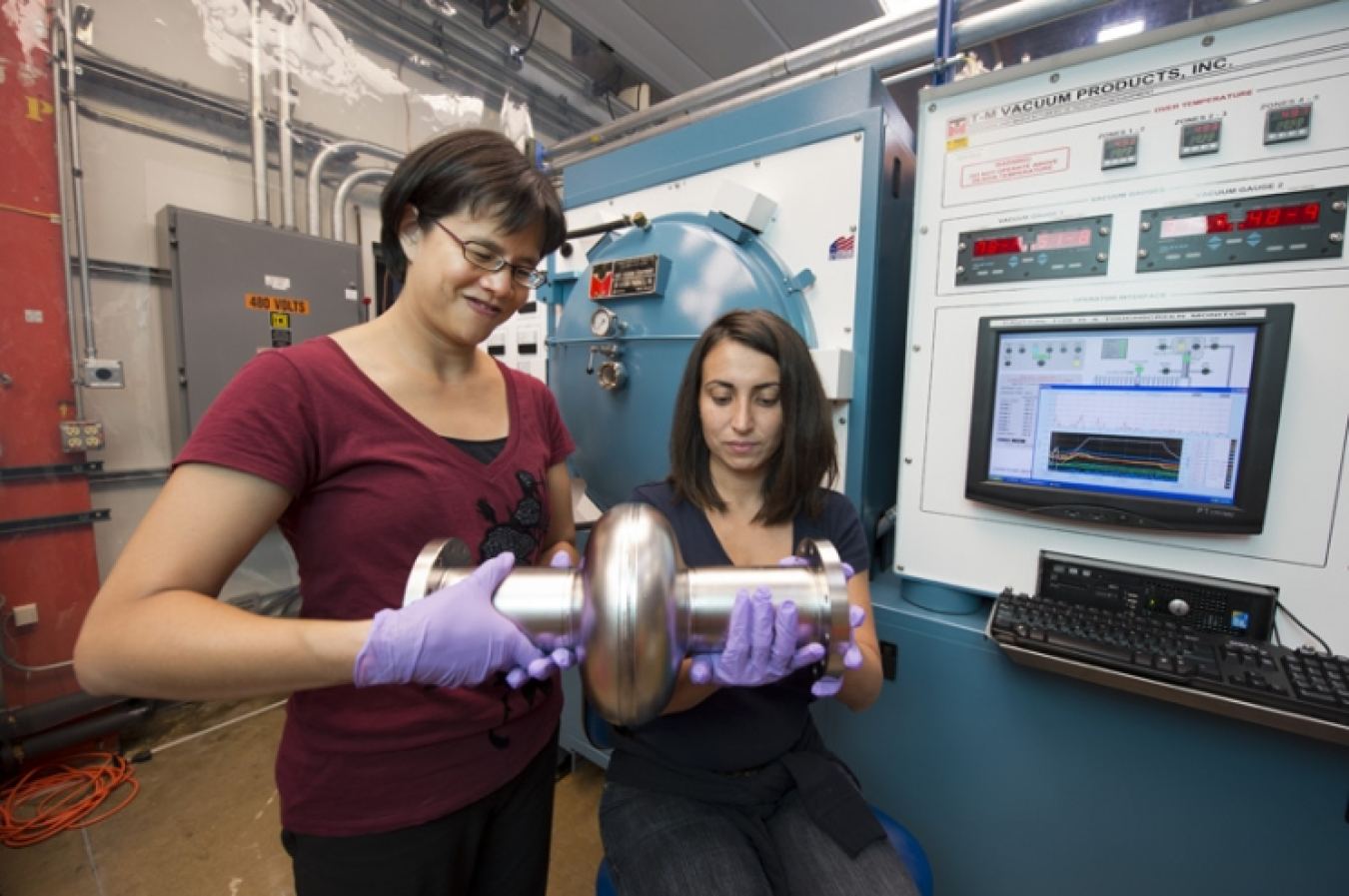Learn why Mayling Wong-Squires loves her job as a Mechanical Engineer at Fermi National Accelerator Laboratory.
June 11, 2019
Mayling Wong-Squires is a Mechanical Engineer at Fermi National Accelerator Laboratory. She is currently the head of the Accelerator Division’s Mechanical Support Department. The department provides engineering, drafting, and technician support for the beamline’s auxiliary mechanical systems such as vacuum systems, cooling fluid systems, and support structures. In addition to providing operational support, the department supports the planning and building of projects such as LBNF, PIP-II, Mu2e, and MAGIS.
What inspired you to work in STEM?
I always enjoyed math and science through high school. When I was in college, for two summers, I worked for a pediatric neurologist in her laboratory where she studied the brains of rats. I realized that, while I was not as interested in the medical research, I was interested in equipment that ran the experiments. I returned to college at the end of the second summer to switch into engineering.
What excites you about your work at the Energy Department?
It is a privilege to work in a place where no day is alike and everyone is working towards a common cause: understanding the basic structure of matter. Through the years I have worked on projects of a wide variety of subjects: baking materials at elevated temperatures up to 1000 degrees C (1832 degrees F), designing systems to delivery fluids at cryogenic temperatures down to 2 degrees K (-456 degrees F), researching the outgassing of materials in a vacuum environment, designing a system to move and install 12-ton magnet inside a tunnel. As interesting as the work is, the people make the Fermilab a special place to work. I am lucky to work with scientists, engineers, technicians, designers, and support staff from all walks of life, from all over the country and all over the world.
How can our country engage more women, girls, and other underrepresented groups in STEM?
More resources should be directed to creating wide-ranging opportunities for everyone to apply their enthusiasm for STEM projects and jobs. Do all middle schoolers have the chance to participate in a science fair project? Where can a high schooler go to participate in a robotics contest? How can a college student obtain an internship in industry to gain experience in computer engineering? Where can a PhD graduate in physics continue in her research? While opportunities exist, they are not accessible equally to underrepresented groups, especially those who live in areas where science and technology are not a priority. Efforts need to be undertaken by industry, schools and universities, and government institutes alike.
Do you have tips you'd recommend for someone looking to enter your field of work?
One must enjoy math and science, as it is an essential tool to use in engineering. Also, communication is key for any engineer (counter to stereotypes!). Whether it speaking face-to-face, writing an engineering note, or creating a drawing, one must be able to communicate ideas and solutions in a clear fashion to start, build, test, and implement a project. Finally, it helps to keep an open mind as to where one's career will take you. When an opportunity arises, be open to considering it even if it is not in one's original plans. You never know what happens unless you try it! As a student, a good way to learn about the work and gain experience is with practical experience: summer camps, competitive teams (robotics, racing cars), summer internships and research projects, co-op engineering (for college students).
When you have free time, what are your hobbies?
I have joined a small group of folks at the lab who have taken on the "Summer Iron Man Challenge." We each aim to swim 2.4 miles, bike 112 miles, and run/walk 26.2 miles over the course of the summer months. For me, it really becomes figuring out how to optimize my free time to complete this! Also, I love to read! But lately, it seems that the only way I can enjoy a book is by listening to an audiobook (such as when I run).
Learn more about our programs & resources for women and girls in STEM at http://www.energy.gov/women

